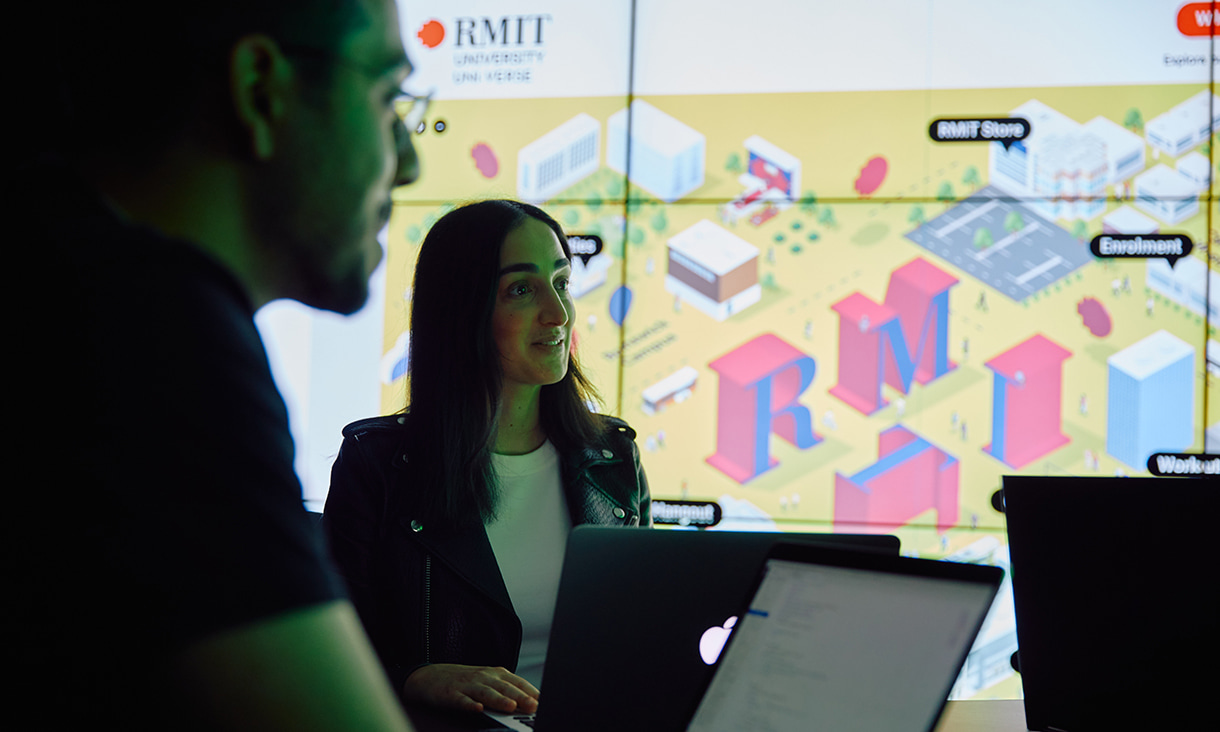From transformative technology to remote leadership, be ready for the jobs of the future through postgraduate study at RMIT.
The Australian workforce has seen a vast number of changes. From the Great Resignation to greater expectations for work-life balance, industries are undergoing rapid changes to adapt.
It may feel like an uncertain time, but safeguarding your career without backing yourself into a corner all comes down to possessing transferable, future-focused skills.
Discover how RMIT’s postgraduate certificates and degrees respond to the ever-evolving needs of future jobs in your industry.

#1: Stay informed on industry trends
Understanding industry trends means you’ll be able to understand what will likely impact your industry, organisation and role. For a growing number of industries, blockchain technology is the trend to completely change the way businesses operate, and is therefore one of the top areas to possess knowledge in for future jobs.
In fact, a survey by Deloitte found that 55% of senior executives and practitioners in global organisations viewed blockchain as “critical” and in the “top five strategic priorities” between 2020 and 2022.1
Equip yourself for the new digital economy
The Master of Blockchain Enabled Business at RMIT is Australia’s first, truly multidisciplinary applied degree that will prepare you to lead in a range of in-demand roles and sectors. With RMIT positioned as a global frontrunner in the blockchain space, you’ll engage with world-first research hubs and problem-based learning to lead at the frontier of the emerging digital economy.
#2: Embrace new ways to lead and operate
With over 10.5 million Australians experiencing a change in employment as a result of COVID-192, and two-thirds of those now working from home3, embracing change has never been more important. Managing projects remotely, adapting quickly to current issues, and leading your team with a collaborative mindset are some of the top skills employers will be seeking.
Connect people skills with emerging technologies
Develop highly sought after leadership skills through RMIT’s Master of Project Management or the Graduate Certificate in Project Management. You’ll learn how to lead complex projects on time and on budget, contribute to the efficiency of your business and apply solutions to tomorrow’s challenges within a range of industries, including construction, engineering, IT and more.
#3: Invest in emerging and trending skills
Jobs are changing, and the skills we need most are changing with them. Gaining emerging and trending skills is a great way to ensure you’re able to adapt to the needs of the job market.
According to the National Skills Commission, a trending skill is not new, but has started gaining importance in the last five years4. For example, social media is a trending skill that is increasingly appearing in job ads for roles like fitness instructors and hotel managers. Alternatively, an emerging skill is defined as one that has only started appearing in job ads in the last five years, such as data analysis and data management. Skills in data are cited by the Commission as one of the two fastest-growing emerging skills in Australia.
Delve into the world of data
Gain the specialist skills to manage and analyse big data through the Graduate Certificate in Data Science or Master of Data Science at RMIT. In acquiring a detailed understanding of analytics, statistics and computer science, you will enable yourself to be central to business decision-making, corporate strategy and government planning - no matter which industry you choose to advance into.

#4: Gain specialist knowledge in your field
According to a 2021 labour market report by the National Skills Commission, work in Australia will require a greater level of skill and experience, with more than 90% of new jobs in the future projected to require a post-school qualification5. The report states, “From a qualification perspective, occupations in high demand are more likely to be specialised and require higher level skills and formal qualifications.”
If you have a strong passion for the industry you’re currently in, gaining generalist skills may not be your first choice - and that’s okay. Instead, becoming a specialist in your field could fast track the trajectory you’re already following into a higher-paying role.
Make a global impact solving contemporary global challenges
With the ability to specialise in development, urban sustainability, crisis management and disaster response, or security, the Master of Global Studies will help you pursue emerging and cross-sector job opportunities. You will emerge with advanced knowledge and skills to lead teams, communities and inform strategic decision-making across a diverse range of industries.
#5: Create an environment of growth for people around you
Researching your next career move? You’re not alone. The reality is that many workers are exploring their options, regardless of whether they’ve been displaced. In fact, job vacancies in Australia are the highest they’ve been since 1979, forcing employers to reconsider their strategies for employee retention6.
To meet this interest in career development, skills in career counselling, coaching and guidance are of growing importance in organisations of all sizes.
Advance your career by helping others
Add value to your organisation by gaining the ability to guide others through industry changes. RMIT’s Graduate Certificate in Careers Education and Development will give you the career management strategies, high-level communication and counselling skills you need to apply ethical and effective practice in career development.

RMIT’s postgraduate certificates and degrees can be undertaken in as little as six months.
Story: Pallavi Daniel
1Deloitte Insights. Deloitte’s 2020 Global Blockchain Survey: From promise to reality. 2020. www.deloitte.com/ie/en/pages/technology/articles/Global_Blockchain_survey.html
2Roy Morgan. Finding No. 8383, 2020. www.roymorgan.com/findings/8383-roy-morgan-coronavirus-crisis-impact-on-employment-april-24-2020-202004240654
3Australian Government. “Two thirds of Australians are working from home.” 2021. aifs.gov.au/media-releases/two-thirds-australians-are-working-home
4National Skills Commission. “Australia’s emerging skills”. The state of Australia’s skills 2021: now and into the future. 2021. www.nationalskillscommission.gov.au/australias-emerging-skills
5National Skills Commission. “Report overview: State of Australia’s skills 2021”. The state of Australia’s skills 2021: now and into the future. 2021. www.nationalskillscommission.gov.au/australias-emerging-skills
6Fitzsimmons, Caitlin. “Australia’s version of the ‘great resignation’ revealed as staff swap jobs”. The Sydney Morning Herald, 14 Nov 2021, www.smh.com.au/business/workplace/australia-s-version-of-the-great-resignation-revealed-as-staff-swap-jobs-20211111-p5984f.html
You may also be interested in:
Find the right course for you
With over 350 qualifications to choose from, it's never been easier to find the right fit.


